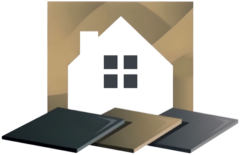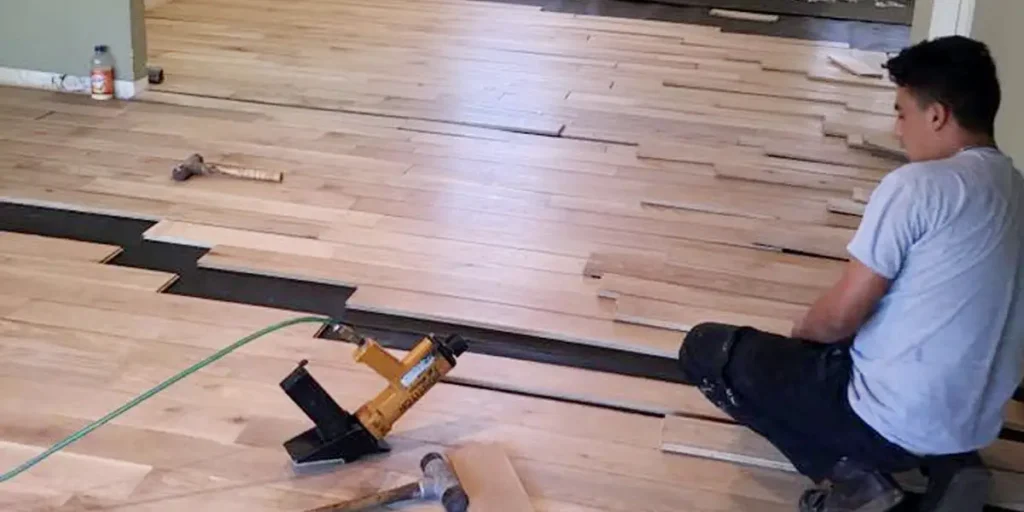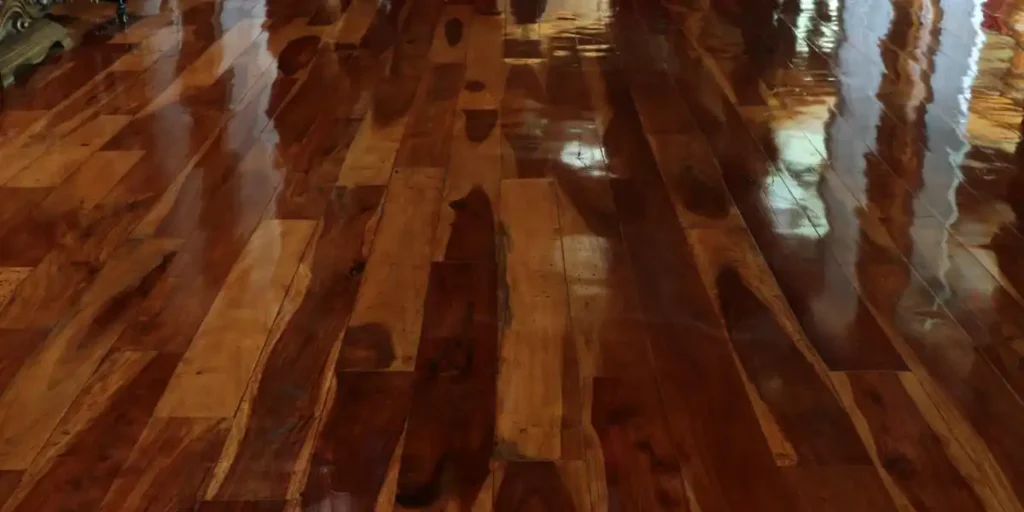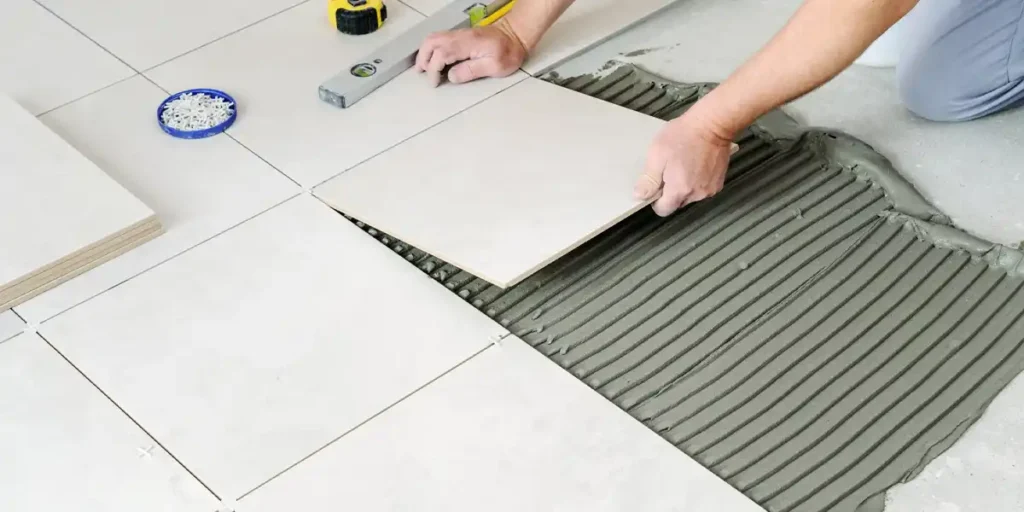Are you overspending on commercial flooring?
When it comes to commercial flooring, budgeting can be a challenge. Are you struggling to estimate costs and avoid unexpected expenses? Flooring is a major investment, and without careful planning, costs can spiral out of control.
This guide unveils the true commercial flooring cost per square foot, breaking down everything from material costs to installation experience and hidden expenses.
Whether you're considering engineered planks, luxury vinyl plank, or porcelain tile, we'll help you stay on budget while ensuring quality and durability.
Understanding a Commercial Flooring Project Quote
A flooring quote isn’t just about material costs. It includes:
- Material costs – The price of carpet, tile, vinyl, or hardwood.
- Installation costs – Professional labor for placing and securing flooring.
- Floor preparation materials – Underlayment, adhesives, and leveling materials.
- Unexpected costs – Hidden expenses like moisture mitigation and furniture moving.
Avoiding Budget Pitfalls
It’s tempting to save money by cutting material costs, but quality flooring must withstand heavy foot traffic without frequent maintenance. Choosing engineered planks with a low gloss finish can help reduce the appearance of scratches and wear over time.
Common Commercial Flooring Types and Their Costs
Here are the best flooring types and their costs:
1. Carpet and Carpet Tile
Carpet is a soft, noise-reducing option for commercial spaces. Carpet tile offers flexibility as damaged areas can be replaced without redoing the entire floor.
- Cost: $2 – $7 per square foot
- Pros: Comfortable, noise reduction, replaceable tiles
- Cons: Stains easily, requires regular maintenance
2. Luxury Vinyl Plank (LVP)
LVP mimics hardwood while offering durability and easy maintenance.
- Cost: $2 – $8 per square foot
- Pros: Water-resistant, affordable, realistic wood appearance
- Cons: Can dent under heavy objects
3. Hardwood Flooring
Classic and elegant commercial hardwood flooring lasts for decades when maintained properly.
- Cost: $4 – $9 per square foot
- Pros: Durable, high-end appeal, increases property value
- Cons: Expensive, requires refinishing over time
4. Porcelain Tile
Porcelain tile is a premium option that is highly scratch-resistant and waterproof.
- Cost: $12.99 – $17.99 per square foot
- Pros: Long-lasting, stylish, low maintenance
- Cons: Expensive installation, cold underfoot
5. Rubber Flooring
Best for gyms, hospitals, and industrial settings due to its slip-resistant nature.
- Cost: $3 – $12 per square foot
- Pros: Durable, noise-absorbing, slip-resistant
- Cons: Limited design options
Estimating Flooring Costs Accurately
Here are the estimated costs:
Step 1: Measure Your Space
- Multiply the length by the width of the room to determine the total square footage.
- Add 5-10% extra for waste and cuts.
Step 2: Research Material Costs
Compare flooring options and pricing at stores like Floor Decor Design Center.
Step 3: Factor in Installation Costs
Installation costs range from $2 – $8 per square foot, depending on material and complexity.
Step 4: Consider Additional Costs
- Underlayment: $0.30 – $1 per square foot
- Adhesives & Fasteners: $0.30 – $1 per square foot
- Trim & Molding: $1 – $4 per linear foot
- Removal of Old Flooring: $0.70 – $5 per square foot
Factors Influencing Flooring Costs
Some key factors to consider about flooring costs:
Key Cost Influencers
- Material Type – Hardwood vs. Vinyl, Carpet vs. Tile.
- Square Footage – Larger spaces require more materials and labor.
- Installation Complexity – Intricate tile patterns cost more to install.
- Subfloor Condition – Additional repairs may be required before flooring installation.
- Geographic Location – Labor costs vary by region.
Hidden Costs in Flooring Projects
Watch out for unexpected costs such as:
- Moisture mitigation – Required for damp environments.
- Subfloor leveling – Necessary for uneven floors.
- Transition strips and trim – Essential for doorways and thresholds.
Installation and Maintenance Considerations
Proper installation and regular maintenance are essential for maximizing the longevity and performance of your commercial flooring.
Why Proper Installation Matters
Choosing experienced installers ensures longevity and fewer unexpected costs. DIY projects can lead to mistakes that increase costs later.
Maintenance Tips to Save Money
- Use low gloss finishes to reduce visible scratches.
- Schedule regular maintenance to prolong flooring lifespan.
- Select durable materials like engineered planks for high-traffic areas.
Final Thoughts
To sum up, budgeting for commercial flooring requires careful planning.
From understanding material costs to preparing for unexpected expenses, having a clear estimate prevents overspending.
Need expert help? Get a free project quote today! Contact us here: Cardenas Fort Worth Flooring.
FAQs
1. What is the average commercial flooring cost per square foot?
Costs vary from $2 to $20 per square foot, depending on materials and installation.
2. What is the most budget-friendly commercial flooring option?
Carpet tile and vinyl composition tile (VCT) are cost-effective choices.
3. Can I install commercial flooring myself?
It depends on the material. DIY-friendly options include vinyl plank flooring, but porcelain tile and hardwood require professional installation.
4. How do I prevent unexpected flooring costs?
Plan for contingency budgets get a detailed project quote, and factor in floor preparation materials.
5. How long does commercial flooring last?
With proper installation experience and maintenance, most flooring lasts 10-30 years.




